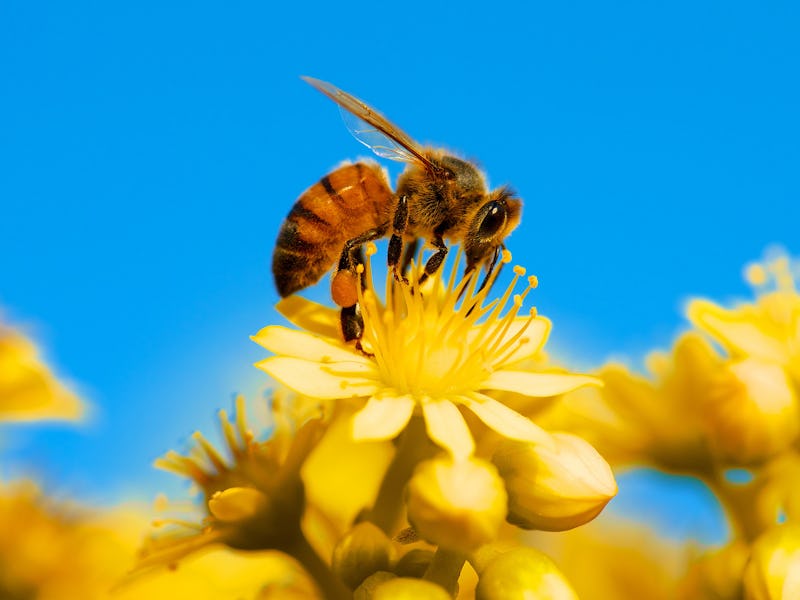Junkie Bees Think Caffeinated Nectar Is Great, Even When It's Not
Bees can't resist the buzz.

Once bees develop a taste for caffeine, they’ll do just about anything to get a fix.
“The effect of caffeine is akin to drugging, where the honey bees are tricked into valuing the forage as a higher quality than it really is,” says Roger Schürch of the University of Sussex, one of the authors of a paper recently published in Current Biology.
Bee #22 gets a caffeine fix.
How it works: Plants that lace their nectar with naturally occurring caffeine can pass off a lower-grade (less sweet) product and still get lots of action.
Caffeine is thought to deter predators like caterpillars in addition to attracting pollinators.
The researchers found that bees who sucked caffeinated nectar were way more likely to perform a waggle dance, which is how bees tell each other, “Hey, I found the good stuff over there!”
If plants with caffeinated nectars respond to this competitive advantage by lowering the quality of their nectar, this becomes an issue for the bees. The researchers calculated that a colony with access to less-sweet but caffeinated goods would produce 15 percent less honey.
What we don’t know, yet, is if plants actually use this power for nefarious gain. The researchers propose to study if plants with caffeine in their nectar actually produce less sweet juice.
Caffeine isn’t the only chemical used to spice up nectar. A different study found that nicotine in the nectar of a tobacco plant serves to actually repel honeybees, but only slightly, so that they move more quickly from plant to plant.
We usually think of the relationship between plant and pollinator as a symbiosis of mutual benefit. In some cases, it turns out, the relationship may be more akin to drug dealer and junkie.
More Bees: Is This Bacteria the Key to Saving Bees From Pesticides?